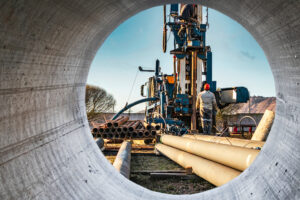In the first quarter of 2020, we saw billions of people on lockdown or various forms of stay at home orders due to the COVID-19 pandemic. As the world comes back online slowly, many industries continue to feel the pains of COVID-19. Oil refineries are among those who are struggling despite reopening and increasing oil prices.

The Struggle Continues for Oil Refineries
Lockdowns and strict travel restrictions have negatively impacted fuel demand; people have not been traveling as they normally would and the market for fuel transportation has been all but wiped out. This has led to long periods of storage, resulting in the breakdown of products such as gasoline and jet fuel. The result has been increased costs for refiners. In response, refiners have cut production rates, despite attractive crude prices.
Haseeb Ahmed, an oil and gas analyst at GlobalData stated, “In the wake of the COVID-19 outbreak and plunging fuel demand, global refinery operators had no option other than to under-utilize their refinery capacities, delay maintenance activities, slash capital expenditure, and stall avoidable projects to conserve cash and tide over the current depressed market scenario,” in a company statement about the current state of business for refineries.
Ahmed went on to say, “To navigate successfully through the current market scenario, refinery operators may look at building a robust business continuity and contingency plan to ensure minimal impact on critical operations; identify and resolve immediate challenges posed by COVID-19 to the company’s stakeholders; focus more on remote operations through automation and digitalization and less on employee intensive operations to tackle any such situation in the future.”
As of June 1, there are six million confirmed cases of COVID-19 around the world, with 371,166 deaths, according to the World Health Organization. More than 100 countries had put full or partial lockdowns in place by the end of March, explaining the lack of demand for oil. Rystad Energy has released a demand forecast and despite the reopening, expects global demand for road fuel to drop by 9.9% or 4.7 million barrels per day. Additionally, jet fuel is supposed to drop by 40.8%. While the reopening of cities gives the industry hope overall, the reopening is slow and simply not fast enough for refineries to recoup losses.
MSI Provides Industry Insights and Asset Protection You Need
Oil prices and demand are constantly changing and we enjoy providing industry updates as they are relevant to our product lines. We hope you’ll consider letting MSI Pipe Protection Technologies help position your company to successfully protect your assets even in uncertain times. Speak with one of our experts toll-free at 877-276-9208.




